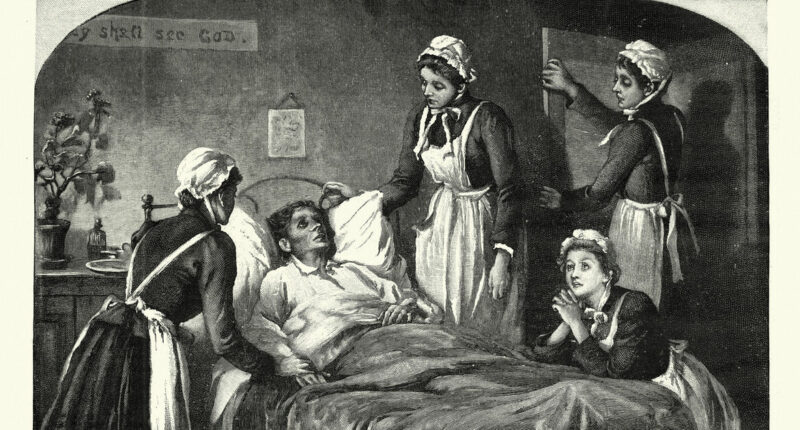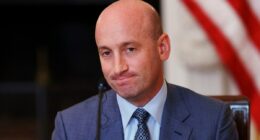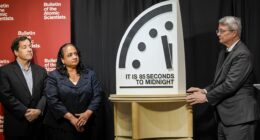Share this @internewscast.com

Everything we know about Victorian Disease after Amazon warehouse outbreak – full list of symptoms (Image: Getty)
Workers in an Amazon factory in Coventry have tested positive for a “Victorian Disease” as unions fear a severe outbreak. Amazon confirmed that 10 people had tested positive for non-contagious TB in September 2025. But as the site employs around 2,000 workers, the union said Amazon risked its warehouse “becoming the engine room of a mass TB outbreak not seen for decades”.
In a concerning development at an Amazon warehouse in Coventry, ten employees have been diagnosed with tuberculosis (TB), a disease historically known as a “Victorian Disease.” The incidents, confirmed by Amazon for September 2025, have prompted unions to express fears of a potential large-scale outbreak. With approximately 2,000 staff members working at the site, union representatives warn of the possibility of the warehouse becoming a catalyst for a TB epidemic reminiscent of those from decades past.
Tuberculosis is a bacterial infection that primarily impacts the lungs and is transmitted through the air via droplets when an infected person coughs, sneezes, or even talks. During the 18th and 19th centuries, TB was a major health crisis in Europe, responsible for a significant portion of deaths. It was particularly deadly during this era, claiming the lives of about 25% of the population between the 1600s and 1800s.
Read more: BBC Homes Under The Hammer star urges viewers to make an important check
Read more: Panic in Canary Islands as beach health risk warning issued
Cases spread at an Amazon warehouse (Image: Getty)
Rapid urbanisation during the Industrial Revolution made cases skyrocket during Victorian England, which gave the disease its nickname.
Overcrowded housing, poor ventilation and long factory hours allowed TB to spread much faster, while poor nutrition also made people more vulnerable to the disease.
The Industrial Revolution saw a dramatic rise in TB cases, especially in Victorian England, where the disease earned its notorious moniker. Factors such as overcrowded living conditions, insufficient ventilation, and long working hours in factories contributed to its rapid spread. Additionally, inadequate nutrition heightened individuals’ susceptibility to the disease.
Cases only began to reduce after the Victorian era, when housing improved, and the bacille Calmette-Guérin (BCG) vaccine was a major breakthrough in 1921. Antibiotics drastically reduced deaths after they were created in 1943.
Before that, sufferers were recommended a whole host of treatments, from consuming cod liver oil to massages with vinegar, or inhaling pungent plants. In the Middle Ages, being touched by a royal was even believed to cure the disease.
Nowadays, rates in the UK are low, according to the World Health Organisation, with just 8.5 cases per 100,000 people in 2023.
But it is still the second leading single-agent infectious killer after COVID-19 globally, with more than 10 million people falling ill with TB every year and 1.4 million dying around the world.
Dr Roger Gajraj of UKHSA West Midlands stated: “The small number of individuals affected by tuberculosis are responding well to treatment and are no longer infectious, so pose no onward risk.”
However, GMB union’s senior organiser Amanda Gearing warned: “Currently, Amazon is putting all workers, site visitors, and the local and wider communities at risk of exposure to a serious infectious disease.
“Coventry Amazon risks becoming the engine room of a mass TB outbreak on a scale not seen for decades. Immediate and decisive action – including the temporary closure of Amazon Coventry – is required to prevent this,” reports The Sun.
A spokesperson for Amazon said: “Last year, a small number of people who work at our Coventry fulfilment centre tested positive for TB.
“In line with best practice safety procedures, we immediately followed guidance from the NHS and UKHSA and made all potentially affected employees aware of the situation.
“Those affected by TB responded well to treatment and are no longer infectious, posing no onward risk. As a precaution, we are running an expanded screening programme with the NHS this month.
“To date, no additional cases have been identified, and our site continues to run as normal. We will continue to follow guidance from the experts in the NHS, and would respectfully remind public organisations of the need for responsible communications where matters of public wellbeing are concerned.”
The NHS lists the following common symptoms:
- a cough that lasts more than 3 weeks – you may cough up mucus (phlegm) or mucus with blood in it
- feeling tired or exhausted
- a high temperature or night sweats
- loss of appetite
- weight loss
- feeling generally unwell
- Children may also have difficulty gaining weight or growing.
If TB has spread to another part of your body, such as your glands (lymph nodes), bones or brain, other symptoms may include:
- swollen glands
- body aches and pains
- swollen joints or ankles
- tummy or pelvic pain
- constipation
- dark or cloudy pee
- a headache
- being sick
- feeling confused
- a stiff neck
- a rash on the legs, face or other part of the body
















